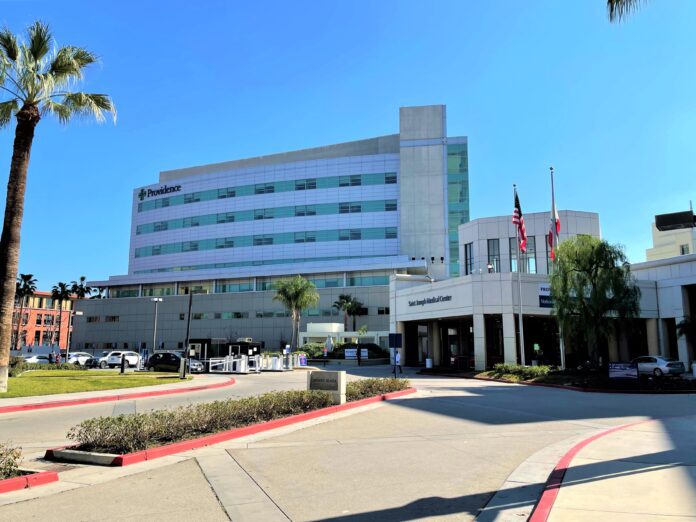At Providence, our care extends far beyond the walls of our hospitals and deep into the community.
Each year, the health organization, often partnering with like-hearted organizations, provides hundreds of millions of dollars in health services including vaccinations, access to healthful foods, resources for the unhoused and mental health programs.
In 2023, Providence contributed $483 million in charity care, unpaid costs of Medicare and MediCal and services targeting social determinants of health, according to the Annual Report to Our Communities, published Tuesday.
“So much of the work we do occurs outside the walls of our hospitals and clinics,” said Laureen Driscoll, chief executive of Providence South Division, serving all California operations. “Our goal is to address health issues in our under-served communities, where people live, to enhance health and avoid unnecessary hospital stays.”
These community benefit services are based on three-year assessments that determine individual community needs.
“Southern California is home to hundreds of thousands living on the margins,” said Kenya Beckmann, chief philanthropy and health equity officer for the Providence South Division. “We are bound by our vision of Health for a Better World to care for all. Our team of community health caregivers partners with other organizations and individuals to identify and remove barriers to health. We are grateful for the expertise of our partners to meet our shared goal of building healthier communities.”
The Annual Report details contributions in Southern California:
- Community health improvement and strategic partnerships: $51 million
- Health professions education and research: $8.6 million
- Subsidized health services: $8.2 million
- Free and discounted care for uninsured and underinsured: $32.3 million
- Unpaid costs of Medicaid and other government programs: $383 million
Included in the report are brief stories on the impacts of Providence.
Addressing the mental health crisis in Los Angeles County, Providence offers its Youth Mental Health First Aid program to parents, teachers and peers to identify and respond to adolescents and teen-agers, in need of mental health care. The free eight-hour course is offered in person and virtually, in English and Spanish.
“The training gives background information to recognize signs and symptoms and listen nonjudgmentally,” said Lucia Vides, a community health supervisor with Providence. “The acquired tools participants learn are not meant to enable them to diagnose but rather help save a life.”
And in the High Desert communities served by Providence St. Mary Medical Center in Apple Valley, 638 residents participated in free nutrition classes as part of a program to help those facing food insecurity with access healthful foods. The region has numerous “food deserts” where nutritional foods are hard to find.
Providence is committed to addressing nutrition for general health and, importantly, to combat obesity, diabetes and other food-related chronic illness.
“We can provide comprehensive nutrition education and guide them towards resources like food pantries,” said Shawn R. Smith, PharmD, co-founder and chief executive officer at the partnering Symba Center. “Additionally, we offer free, on-site nutritional classes — teaching individuals how to cook nutritious meals that are budget friendly.”
Addressing growing mental health concerns, Providence Orange County hospitals – Providence St Joseph Hospital, Orange; Providence St. Jude Medical Center and Providence Mission Hospital, Mission Viejo and Laguna Beach – partner with the St. Jude Neighborhood Health Centers to provide mental health and psychiatric care in both English and Spanish.
The program served nearly 3,600 patients last, the vast majority Spanish-speaking. Psychiatrist Nicholas Figueroa, M.D., noted the importance of speaking to patients in their native tongue.
“They appreciate how I ask about their immigrant journey and how that pertains to their current mental health challenges – in their own language,” Dr. Figueroa said.






















